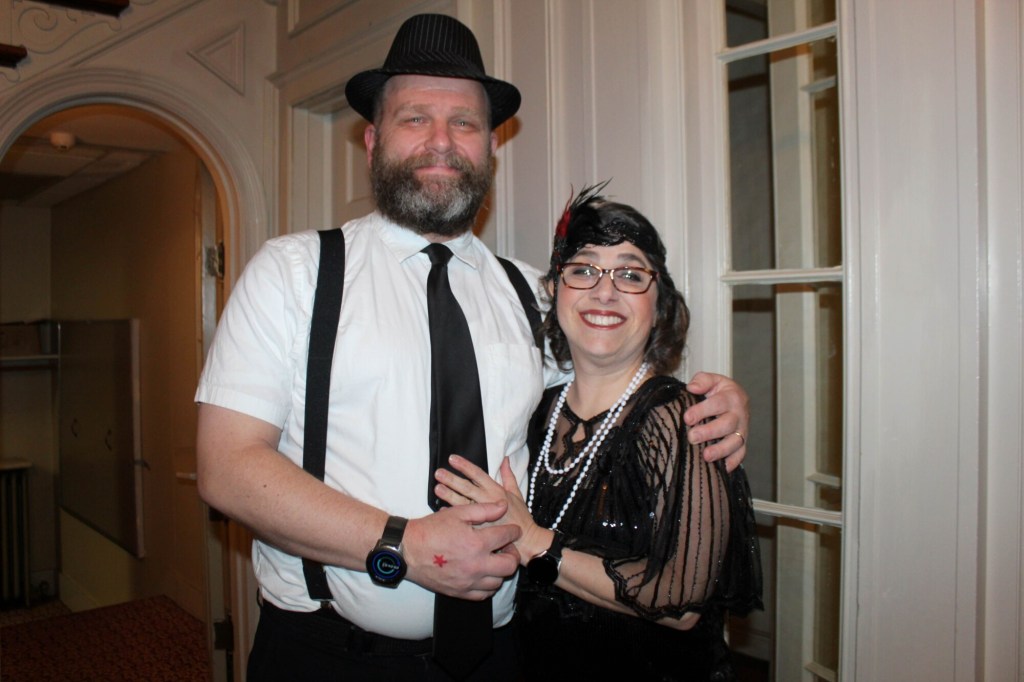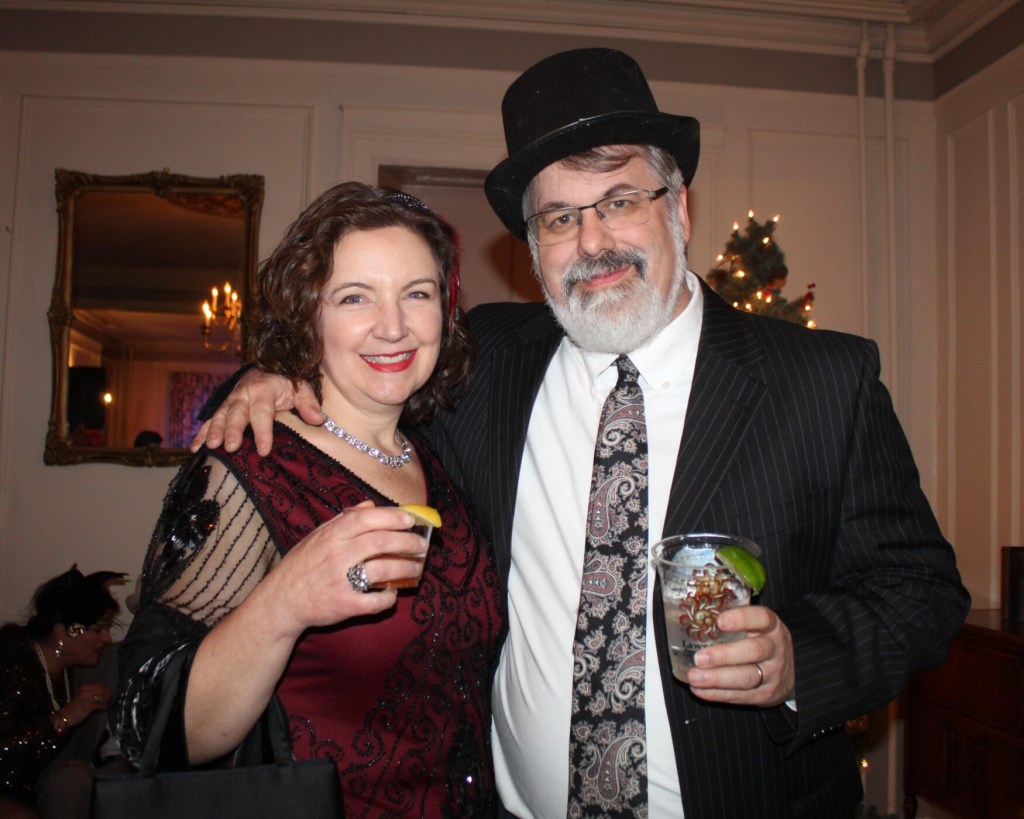The Portland Club hosted a Roaring 20s Rumrunner’s Ball on New Year’s Eve, with 150 revelers dressed in pinstripes and pearls like they were ringing in 1923 in a speakeasy.
“The ‘20s and Prohibition are a fun theme,” said Gail Belt, a club member who shopped online for a headband, hanging purse, long cigarette holder and a boa.
Event organizers clearly had fun with the theme, hanging Prohibition propaganda and “Wanted” posters with club members’ names and mugshots. At the front door of the club on State Street, a sign read: “CLOSED for violation of National Prohibition Act, by Order of United States District Court.”
“I saw that it was going to be a 1920s party and I thought it would be fun to dress up, a little like Halloween on New Year’s,” said Tess Cardona of Buxton. She and her husband, Danny Cardona, were two of dozens of first-time visitors who saw the event on Facebook and were intrigued enough to buy tickets and get decked out in style to dance the night away with the Northern Brew Band and the Lazzlo Family Band.
“This theme has always been on our bucket list because the club has connections to Prohibition,” said President Trish Cobb, wearing a gold-and-cream flapper dress, a long string of pearls and a white boa.
The club’s founder, Republican Fred Dow, entertained political allies at his home in the West End so often that in 1886, the group chose a name: The Portland Club. If Dow’s name sounds familiar, it may be because Fred’s father, Neal Dow, was the Portland mayor who successfully pushed for a statewide ban on the sale and production of alcohol in 1851. Mayor Dow punished violators harshly, so much so that by 1855 there was an incident known as the “Portland rum riots.” That spelled the end of that particular period of prohibition and the end of Neal Dow’s political ambitions.
Fred Dow, however, would go on to serve in the Maine House of Representatives, including as speaker of the house, and to run a newspaper, the Evening Express, which he later sold – along with the Maine Sunday Telegram – to the owner of the Portland Press Herald. When he was nearly 80, The Portland Club acquired the Hunnewell-Shepley mansion built in 1805 to a design by Alexander Parris, with later Colonial Revival updates by John Calvin Stevens. Club memberships pay for the building’s upkeep and preservation.
With this backstory, it is plausible that Fred Dow might have rung in the new year in this same spot a century ago – without a champagne toast, because the nationwide Prohibition would have started by then.
“Prohibition was an important time when there was a lot of countercultural activity and social change,” said member Jack Welliver, who owns the neighborhood bar LFK. “And this place still stood.”
In 1919, just before Prohibition, Fred Dow wrote this in the club’s history: “Today, the Club has fallen from its original political objectives, and maintains the social nature that the original members tried to hide behind. Alcohol and casual games are permitted on the premises. Most importantly, people of all political persuasions are welcome to join the fold.”
That’s even more true today. The 120 members of The Portland Club have only two things in common: They’re old enough to drink. And they pay membership fees of $350 per person or $550 per couple to keep up the property and gather socially for billiards tournaments, monthly Thirsty Thursday socials and seasonal parties.
Amy Paradysz is a freelance writer and photographer based in Scarborough. She can be reached at amyparadysz@gmail.com.
Send questions/comments to the editors.













